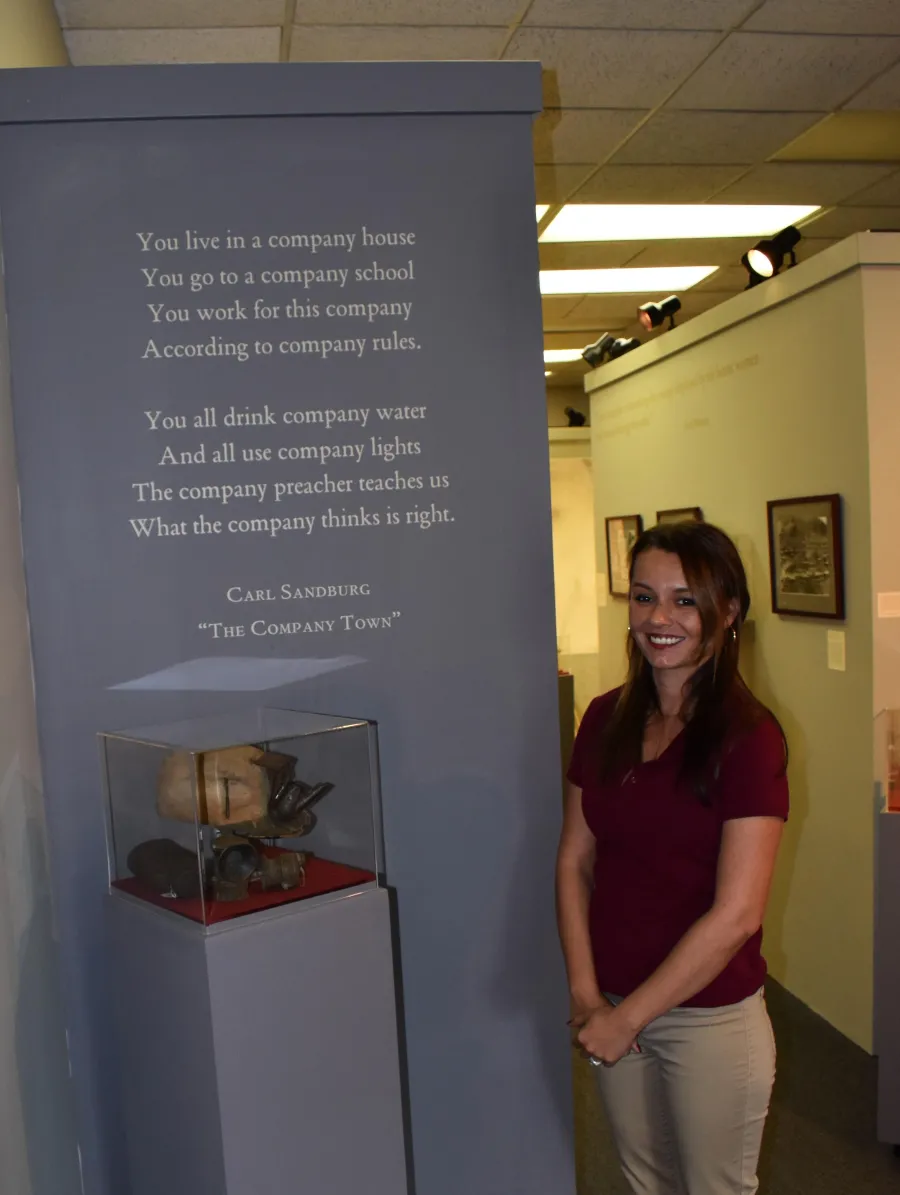Striking Mountain State miners inspired 'Solidarity Forever'

EDITOR'S NOTE: This is the second in our series of history stories about the West Virginia Mine Wars of the early 20th century.
By BERRY CRAIG
AFT Local 1360
[caption align="right"] [/caption]
[/caption]MATEWAN, W.Va. – Most visitors to the West Virginia Mine Wars Museum pause to read a copy of “When the Leaves Come Out,” a poem by “a Paint Creek Miner.”
"Some people know that Ralph Chaplin wrote it," said museum guide Kim McCoy. “Others are surprised that he did.”
A famous socialist, labor journalist and activist, Chaplin is better known for penning the lyrics to “Solidarity Forever,” one of the most beloved union songs, after he covered the 1912-1913 Paint Creek-Cabin Creek Strike near Charleston, West Virginia's capital.
A print of "When the Leaves Come Out" hangs on a wall just inside the museum. It was copied from the April, 1913, issue of The International Socialist Review.
Chaplin reported on the Paint Creek-Cabin Creek strike for the Socialist and Labor Star. The paper was the voice of the United Mine Workers of America, the strikers' union.
Inspired by the striking miners, he composed the words to "Solidarity Forever" in 1914-1915. Sung to the tune of "John Brown's Body" and "The Battle Hymn of the Republic," "Solidarity Forever" is the American union movement's unofficial anthem.
The museum tells the story of the UMWA--Local 1440 is down the street--and the union's early 20th-century struggles to organize Mountain State miners.
Reduced to virtual serfdom by their bosses, miners flocked to the UMWA. Coal companies hired private armies to keep the union out.
The miners fought back, hence the museum’s name.
McCoy’s hometown is famous for the 1920 “Matewan Massacre,” a shootout between the local police chief, deputies and miners on one side and anti-union detectives hired by a local coal company on the other.
Ten men were killed outright or were mortally wounded in the gunbattle on which the 1987 movie Matewan was based.
Chaplin's "'When the Leaves Come Out’ was typically attributed to ‘A Paint Creek Miner,’” says a small card beneath the poem.
He wrote the poem apparently using spring as a metaphor for the strikers' faith that a better life was coming with the UMWA:
The hills are very bare and cold and lonely;
I wonder what the future months will bring?
The strike is on—our strength would win, if only—
O, Buddy, how I'm longing for the spring!
They've got us down—their martial lines enfold us;
They've thrown us out to feel the winter's sting,
And yet, by God, those curs can never hold us,
Nor could the dogs of hell do such a thing!
It isn't just to see the hills beside me,
Grow fresh and green with every growing thing;
I only want the leaves to come and hide me,
To cover up my vengeful wandering.
I will not watch the floating clouds that hover
Above the birds that warble on the wing;
I want to use this GUN from under cover—
O, Buddy, how I'm longing for the spring!
You see them there, below, the damned scab-herders!
Those puppets on the greedy Owners' string;
We'll make them pay for all their dirty murders—
We'll show them how a starving hate can sting!
They riddled us with volley after volley;
We heard their speeding bullets zip and ring,
But soon we'll make them suffer for their folly—
Oh, Buddy, how I'm longing for the spring!